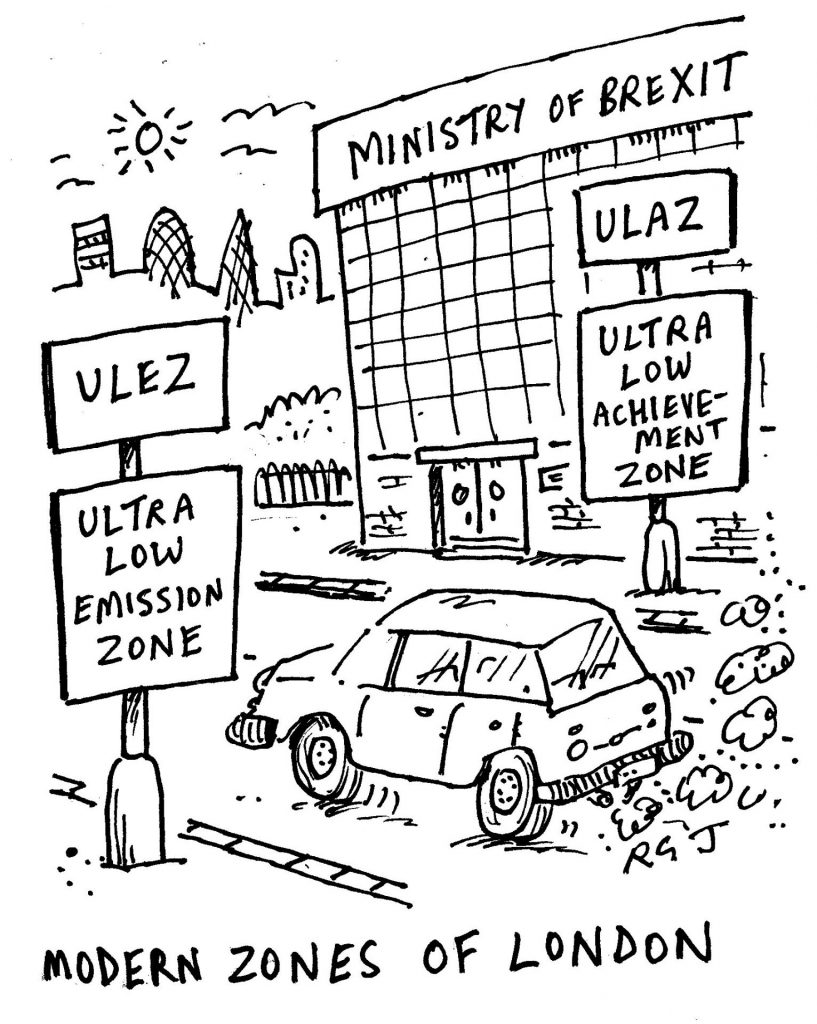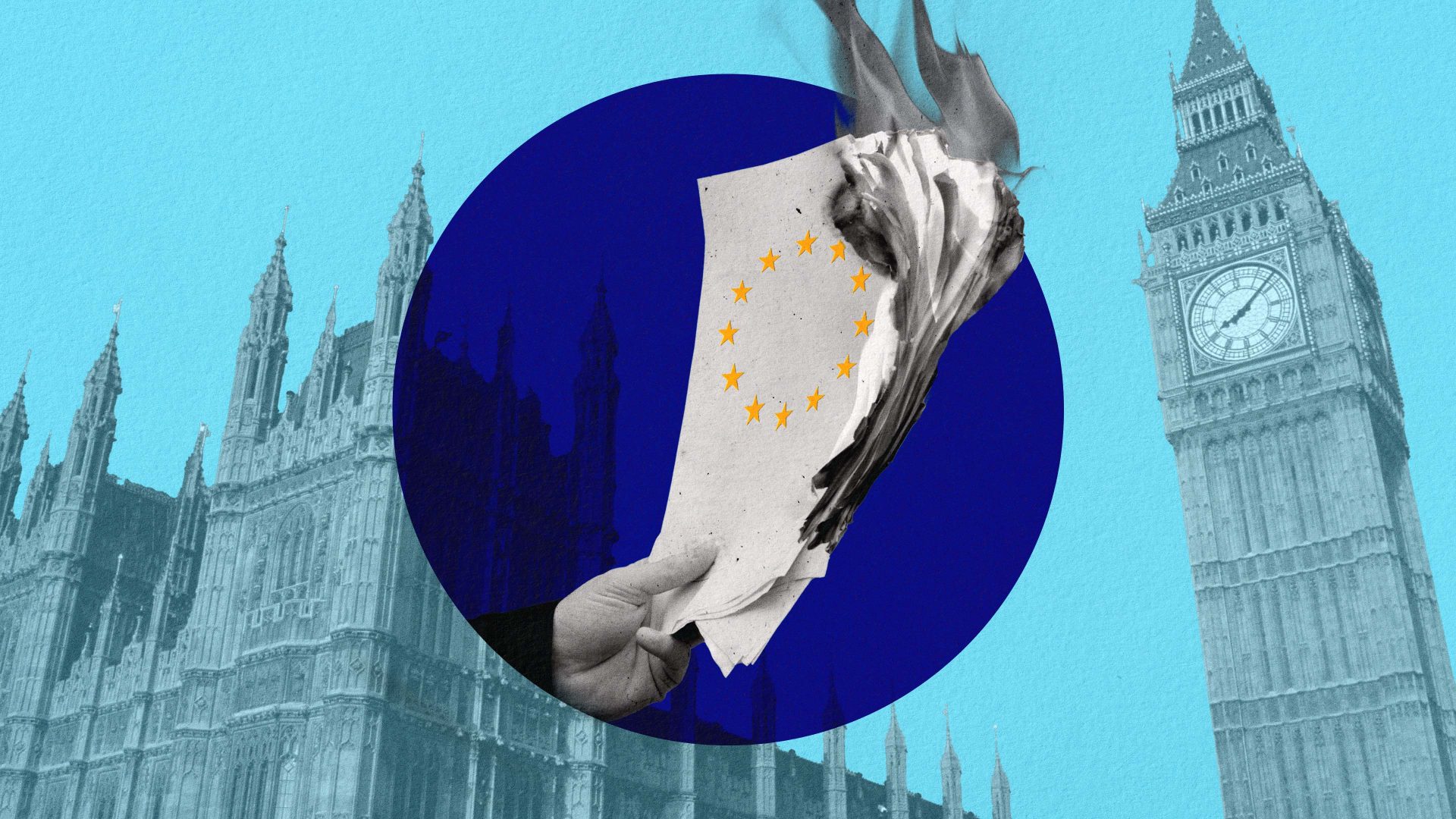So Brexit was about taking back control, was it? It was about parliamentary sovereignty, the idea that we the people should elect our MPs to parliament and they alone should control the laws of the land. Did I get that right?
Those self-same MPs this week debated the Retained EU Law (Revocation and Reformation) bill, a Johnson-Truss-Rees-Mogg creation that seeks to “unshackle” us from what they like to call “burdensome EU legislation”. As ever with Brexit, the sloganising is easy, but the actual consequences far removed from the promises made. Indeed, if you were to ask artificial intelligence to come up with a piece of legislation specifically aimed at weakening parliamentary sovereignty, it might well produce something like the REUL Bill.
It gives ministers, not MPs, the power to dump several thousand UK laws that have been passed by UK parliaments, without the current UK parliament being able to decide what they are. From maternity rights to animal welfare, from consumer rights to water quality, across a huge swathe of employment law, environmental law and more, their aim is that it should all be binned – all because these laws were once agreed with – yuk! – “Europe”.
The TNE website has good pieces on this by Stella Creasy and Clár Ní Chonghaile, and if you want a searing analysis from someone who understands the law better than I do, and better than the gaslighting government ministers and the hard-right Brextremist MPs who pull their strings, check out the article in Prospect by King’s Counsel Schona Jolly, who warns of a “collapse in legal certainty, with grave consequences for individuals, business and public authorities but also – and self-evidently – investment and growth.”
If passed, then as of the first day of 2024, REUL will unleash a new avalanche of buggeration for business and consumers, to add to those buggerations that have already taken a 4% chunk from the economy.
I was hoping to cover some of this when I was asked to go on the Today programme to debate Labour’s Brexit stance last weekend, but in the time available failed to do so. However, it is all part of the same argument I put over, that the Labour Party, contrary to conventional wisdom, stands to gain politically, not lose, from talking about Brexit, and calling out the damage it is doing to Britain.
Austerity, Brexit and the calamity of the Boris Johnson and Liz Truss premierships – these are all part of the same story, of a party that puts its own interests ahead of the country’s, and a government that decides policy on vital issues not according to what is happening in the real world, but what is happening inside the factions that dominate the Tory Party.
Rishi Sunak knows the bill is damaging. But he knows, too, that if he goes back on it, the Brextremist true believers and the Johnson opportunists might make a move. So he goes along with the madness.
It was partly as a result of that reality that in Belfast Keir Starmer said Labour would support Sunak on a new deal to break the impasse on the Northern Ireland Protocol. Smart politics.
Even smarter politics would be to show real confidence – and leadership – in calling out the Brexit mess, and laying it firmly at the door of those Tories, like Sunak, who, unlike Johnson and Truss, actually believed in Brexit all along.
Try this for starters:
- You said there would be no economic downside. So why has it made us all poorer? Your Brexit failure.
- You said there would be a US trade deal. We are not even negotiating it. Your Brexit failure.
- You said it would solve immigration. It’s got worse. And we have a labour market crisis. Your Brexit failure.
- You said the Irish border was not an issue. It is. Your Brexit failure.
- You said Brexit would boost the NHS. The NHS is on its knees. Your Brexit failure.
Where those five came from, there are dozens more to throw at him. Instead of saying he will “make Brexit work”, Starmer should be saying he will “fix the Brexit mess”, because a mess is what it is. Grown-up grip versus damaging denial of reality seems a good dividing line to me, provided you’re on the right side of it.
Imagine if a Labour government had won an election on a series of promises that were unfulfilled, with the lies, buggerations and economic damage now clear for all to see. The Tories would never, ever, ever stop shouting about it. It would make “winter of discontent” (1979) and “mess we inherited” (2010) look tame by comparison.
I get why Starmer doesn’t want Brexit to dominate the election. I get why he will not commit to rejoining, or even relitigating the arguments. But Brexit won’t dominate the election. It just won’t. The economy will. Leadership will. Which party has a plan for the future will. The Brexit debate can be a contributing factor in all three of those, and to the advantage of Labour. They need to seize it.

To an event hosted by Pinsent Masons law firm, where legal author Richard Susskind gave a fascinating after-dinner presentation on the development of artificial intelligence. It included some mind-blowing examples of answers provided to legal questions he had asked of the new chatbot, ChatGPT. As he spoke I passed a note to one of his colleagues, asking whether a combination of AI and the austerity-provoked near collapse of the criminal justice system might lead us to AI courts, in which the role of lawyer and judge was carried out by artificial intelligence. He scribbled back: “US, minor offences, already happening.” Mmm. Scary.
The most moving presentation was from a woman called Anna Babych, a Ukrainian lawyer whose husband, also a lawyer, is back home, while she, their two children and her mother moved to the UK when the war began. She showed me a recent report in the Times from the frontline, illustrated by a picture of two Ukrainian soldiers, one of whom was a partner in her law firm. She had nothing but praise for her host family, and the way that Britain had helped her, her family, and Ukraine.
Both Richard Susskind, and Pinsent Masons’ boss, Alastair Morrison, are Scots, and asked me to play my bagpipes as part of the after-dinner entertainment. So I did, serenading Anna with the Ukrainian national anthem. I take no pleasure in seeing tears well up in a woman’s eyes, but Richard acknowledged that real live music can still stir the emotions in a way that artificial intelligence can not. “Yet”, he added!
I was also grateful to Alastair Morrison for a photo he showed me, which I will almost certainly be referring to in any future speeches I do on a subject I am sometimes asked to talk about, namely soft power. The UK has consistently been at or close to the top of most soft-power league tables, not least thanks to our history, music, sport, culture and, for all their ups and downs, the royal family.
On the day of the Queen’s funeral, Alastair was en route to Australia, and the funeral itself coincided with his flight from Dubai to Sydney. The photo he took was from the back of the large business class section on the Emirates flight, where every single screen you can see is tuned in to live coverage of the funeral in London.
That, he said, is soft power. Indeed it is.
So Boris Johnson is writing a tell-all memoir… he should call it SPARE followed by five asterisks.




